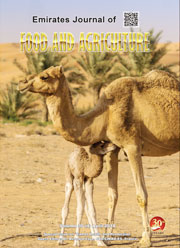Potential antidiabetic effect of date extracts (Phoenix dactylifera L.) in Streptozotocin-induced diabetic rats
DOI:
https://doi.org/10.9755/ejfa.2023.v35.i11.3208Abstract
For many years, medicinal plants have been used to treat diabetes because they cause less undesirable effects than synthetic drugs. This research aimed to study the in vivo antidiabetic activity of Algerian date pulp of the Deglet Noor variety in streptozotocin (STZ)-induced experimental diabetes. The polyphenol composition was established by RP-HPLC-UV and the sugar contents were investigated by HPLC-RID of the ethanolic extract of date pulp. Aqueous date pulp extracts (AP) was administrated to STZ (60 mg/kg b.w.) induced diabetic rats at doses of 150 and 300 mg/kg b.w. (APD1 and APD2) for four weeks. Glibenclamide (5 mg/kg b.w.) was chosen as a reference treatment. The administration of APD1 reduced significantly (p<0.01) fasting blood glucose levels in diabetic rats and also moderately restored body weight as compared to the diabetic control group. A significant decrease in plasma fasting blood glucose and serum lipid profile Total Cholesterol and LDL was observed after administration of APD1 and APD2 in diabetic groups compared with the diabetic control group. Diabetic treated rats received APD1 and APD2 have shown a beneficial treatment response against diabetic complications in pancreas, liver and kidney tissues. This study suggests that the aqueous Algerian date pulp extracts of the Deglet Noor variety have a potential antidiabetic effect by decreasing fasting blood glucose and serum lipid levels and preventing pancreas, liver and kidney tissue of diabetic rats that could be due to its rich composition of active compounds.
Downloads
Published
How to Cite
Issue
Section

This work is licensed under a Creative Commons Attribution-NonCommercial 4.0 International License.










 .
. 